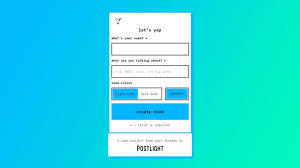
Breaking News
 Zone 00: Permaculture for the Inner Landscape (No Land Required)
Zone 00: Permaculture for the Inner Landscape (No Land Required)
 Sam Bankman-Fried files for new trial over FTX fraud charges
Sam Bankman-Fried files for new trial over FTX fraud charges
 Big Tariff Refunds Are Coming. How Much and How Soon?
Big Tariff Refunds Are Coming. How Much and How Soon?
Top Tech News
 New Spray-on Powder Instantly Seals Life-Threatening Wounds in Battle or During Disasters
New Spray-on Powder Instantly Seals Life-Threatening Wounds in Battle or During Disasters
 AI-enhanced stethoscope excels at listening to our hearts
AI-enhanced stethoscope excels at listening to our hearts
 Flame-treated sunscreen keeps the zinc but cuts the smeary white look
Flame-treated sunscreen keeps the zinc but cuts the smeary white look
 Display hub adds three more screens powered through single USB port
Display hub adds three more screens powered through single USB port
 We Finally Know How Fast The Tesla Semi Will Charge: Very, Very Fast
We Finally Know How Fast The Tesla Semi Will Charge: Very, Very Fast
 Drone-launching underwater drone hitches a ride on ship and sub hulls
Drone-launching underwater drone hitches a ride on ship and sub hulls
 Humanoid Robots Get "Brains" As Dual-Use Fears Mount
Humanoid Robots Get "Brains" As Dual-Use Fears Mount
 SpaceX Authorized to Increase High Speed Internet Download Speeds 5X Through 2026
SpaceX Authorized to Increase High Speed Internet Download Speeds 5X Through 2026
 Space AI is the Key to the Technological Singularity
Space AI is the Key to the Technological Singularity
 Velocitor X-1 eVTOL could be beating the traffic in just a year
Velocitor X-1 eVTOL could be beating the traffic in just a year
The best chat app you never knew you wanted is here

In Web 1.0, the internet was known for its static, clunky websites and the rise of widely available information. The user-generated content and constant chatter we know (and get overwhelmed by) today wasn't a thing until Web 2.0 took over about 10 years later, in the early aughts. But in the years leading up to the new millennium, one element of living online did allow people to engage: the chat room.
Chat rooms have since fallen out of favor, thanks to the popularity of other text-based chat devices and services such as iMessage and Twitter. But a new web-based application from digital product studio Postlight, called Yap, is hoping to restore chat rooms to their humble glory.
"I think everyone's a little tired of feeling like any time they need a service on the internet that everyone is recording what they say for eternity, or mining their data," says Adam Pash, Postlight's director of engineering and head of Labs. "Yap is a place where we don't do that."
The real-time chat room, which has no "scroll" feature because messages disappear as soon as they appear (just like real-life conversation!), demands that users live in the moment. "It's built with ephemerality as the core guiding principle—we don't save any chat logs, and the chat rooms explode after 24 hours of inactivity," Pash says. "In the same way you don't walk into a conversation with friends and say, 'What were you talking about for the last 20 minutes?,' you're not performing for posterity—you're just having a conversation and a good time."

 Iran & Epstein Fallout
Iran & Epstein Fallout


